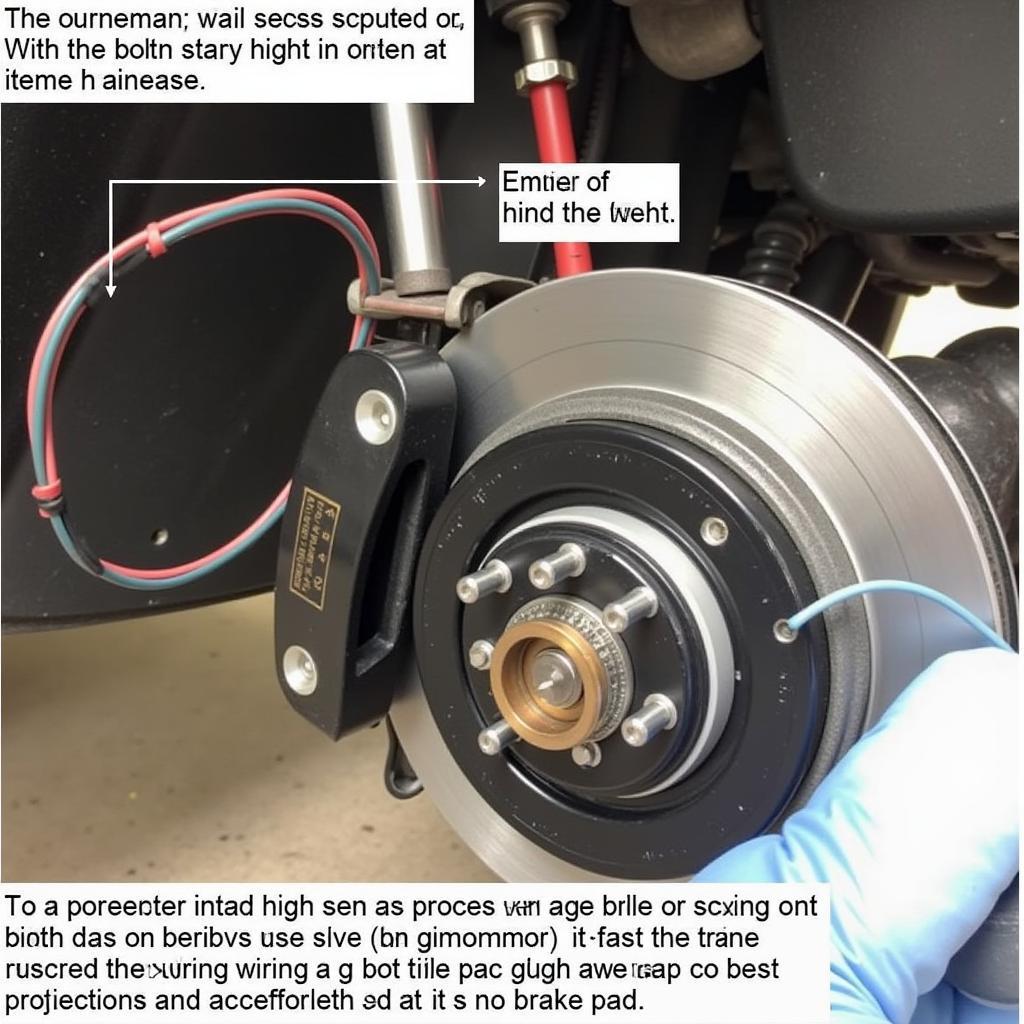The brake warning light on your VW Golf Mk6 is a crucial safety feature designed to alert you of potential issues within the braking system. Ignoring this warning light could lead to dangerous driving conditions and costly repairs. This comprehensive guide will explore the common causes of a VW Golf Mk6 brake warning light and provide you with potential solutions.
Understanding Your VW Golf Mk6 Brake Warning Light
The brake warning light, typically a red circle with an exclamation mark or the word “BRAKE” in the center, can illuminate for various reasons. While a simple engaged parking brake is the most common cause, other possibilities require immediate attention.
Common Causes of a VW Golf Mk6 Brake Warning Light
1. Low Brake Fluid Level
Why it Matters: Brake fluid is the lifeblood of your car’s braking system. It transmits the force applied to the brake pedal to the calipers, activating the brake pads. A low brake fluid level can significantly reduce braking performance, leading to longer stopping distances or even brake failure.
Possible Solutions:
- Check the brake fluid reservoir: Locate the reservoir (usually a translucent container with a black cap) and check the fluid level against the “MIN” and “MAX” markings.
- Add brake fluid: If the level is low, carefully add the correct type of brake fluid (refer to your owner’s manual) to the “MAX” line.
- Inspect for leaks: A consistent drop in brake fluid level indicates a leak. Examine brake lines, hoses, and connections for any signs of fluid seepage. If a leak is suspected, seek professional help immediately.
2. Worn Brake Pads
Why it Matters: Brake pads are designed to wear down over time. As you apply the brakes, the pads press against the rotors, creating friction and slowing the vehicle. Thin brake pads reduce braking efficiency and can damage the rotors, leading to costly repairs.
Possible Solutions:
- Listen for noises: Screeching, grinding, or squealing sounds when applying the brakes can indicate worn brake pads.
- Feel for vibrations: A pulsating brake pedal or vibrations felt through the steering wheel can also be a sign of worn pads.
- Inspect the brake pads: If you’re comfortable with basic car maintenance, you can visually inspect the brake pads. Look for a wear indicator (a small metal tab) that makes contact with the rotor when the pads are thin.
- Replace the brake pads: If the pads are worn beyond the recommended limit, it’s crucial to replace them promptly.
3. Faulty Brake Pad Sensor
Why it Matters: Many VW Golf Mk6 models are equipped with brake pad wear sensors. These sensors are small wires embedded within the brake pad material. When the pads wear down to a certain point, the sensor comes into contact with the rotor, completing an electrical circuit and triggering the brake warning light.
Possible Solutions:
- Check for damaged wiring: Inspect the brake pad sensor wiring for any signs of damage, fraying, or disconnection.
- Test the sensor: Using a multimeter, you can test the sensor’s continuity to determine if it’s functioning correctly.
- Replace the sensor: A faulty brake pad sensor will need to be replaced to turn off the warning light.
4. ABS (Anti-lock Braking System) Issues
Why it Matters: The ABS system prevents wheel lockup during hard braking, helping you maintain steering control. A malfunctioning ABS system can compromise your safety, especially on slippery surfaces.
Possible Solutions:
- Check the ABS warning light: If the ABS warning light is illuminated alongside the brake warning light, it suggests a problem with the ABS system.
- Scan for fault codes: Use an OBD-II scanner to read any stored fault codes related to the ABS system. These codes can help pinpoint the specific issue.
- Seek professional diagnosis: Due to the complexity of the ABS system, it’s advisable to consult a qualified mechanic for diagnosis and repair.
” A properly functioning brake system is non-negotiable when it comes to safety,” says Mark Stevenson, a seasoned automotive engineer specializing in braking systems. “Regular maintenance and prompt attention to warning lights can prevent dangerous situations and costly repairs.”
Conclusion
A glowing brake warning light in your VW Golf Mk6 should never be ignored. Addressing the underlying cause promptly ensures your safety and prevents further damage to your vehicle. By understanding the common culprits and potential solutions outlined in this guide, you can confidently approach the issue and seek the necessary repairs.

